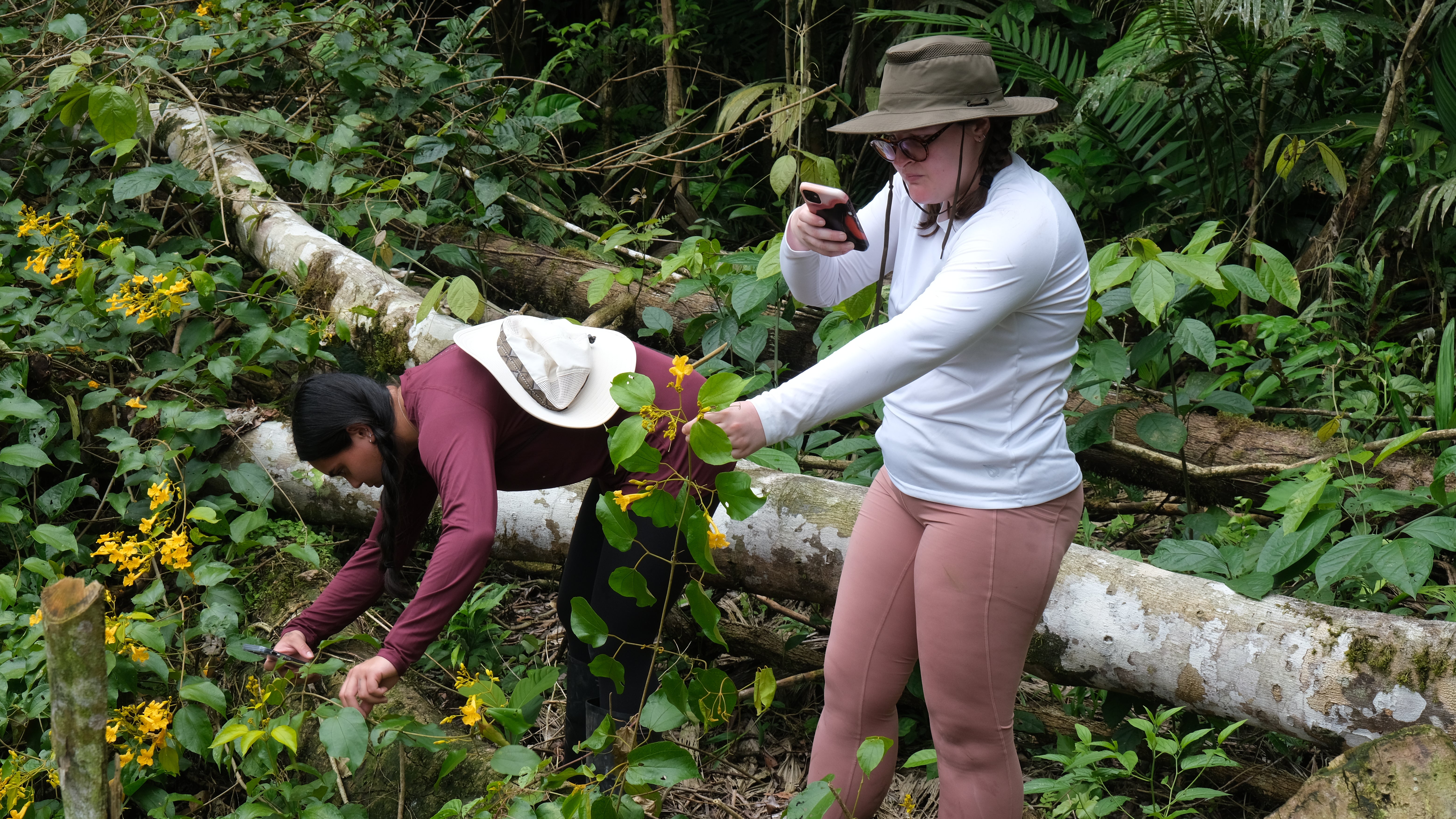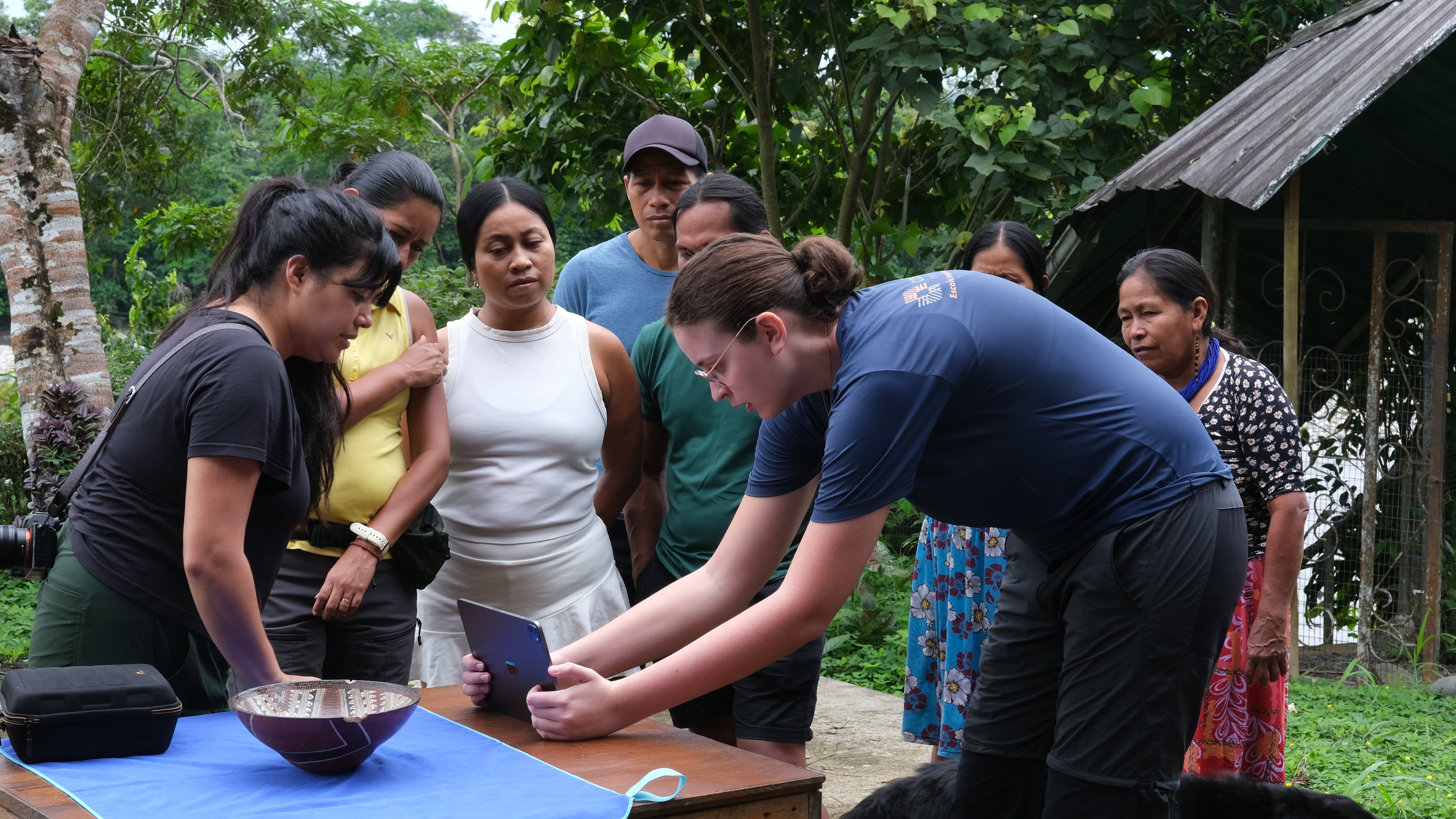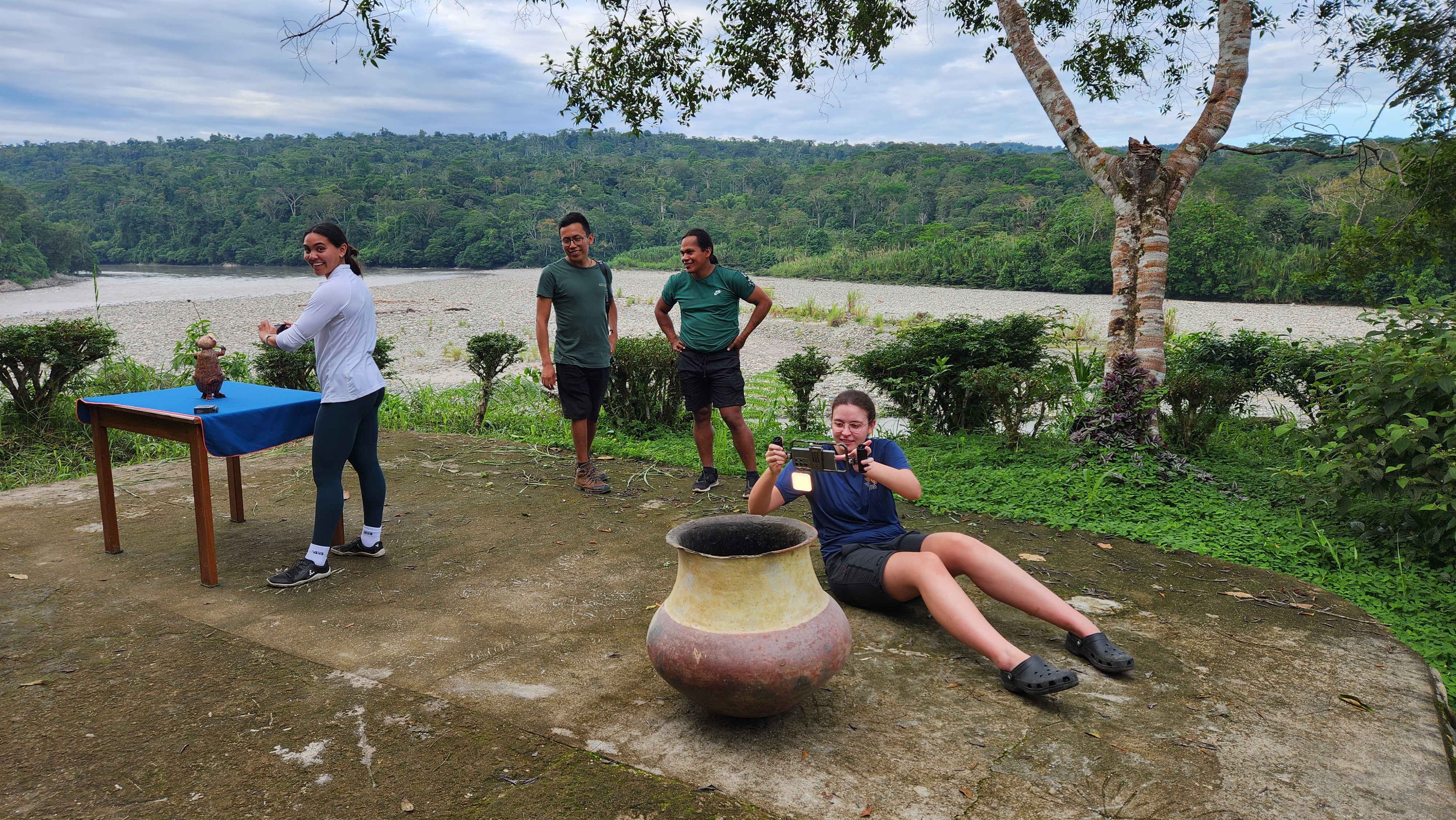What do virtual reality, archiving, disappearing languages and indigenous cultures have in common? The Computing Technologies for Cultural Preservation capstone course that was just launched this past spring semester. The course is a collaboration between The Dietrich School of Arts and Science’s Department of English, Pitt’s School of Computing and Information’s Department of Digital Narrative and Interactive Design (DNID), Pitt’s Center for Latin American Studies, Pitt Global Studies, and Arizona State University Associate Professor, Tod Swanson.
The course is designed to give students hands-on experience in preserving and archiving the history, traditions, culture, and language of indigenous communities in an effort to expand hard-to-access and limited archives. Jessica Fitzpatrick, a teaching associate professor in the Department of English and Director of DNID co-designed the course and syllabus with SCI Clinical Associate Professor Dmitriy Babichenko. It will be offered every spring to juniors and seniors with recruitment beginning in the fall. Currently, it is only offered as a capstone course to DNID and Information Science (BSIS) Students, and as a general course to everyone else. The students taking it as a capstone course will have to be enrolled in a three-credit capstone course in the spring semester (either ENGLIT 1913 or INFSCI 1740). They will receive one additional credit for participating in a 10-day field study. The course is structured into three segments: Preparation of data collection and system development, the trip to Ecuador, and system implementation including generating a virtual world based on the data collected.

The University of Pittsburgh partnered with the Andes and Amazon Field School, founded in 1999 by ASU Associate Professor, Tod Swanson, who grew up in the Amazon. Swanson previously directed Arizona State University's Center for Latin American Studies as a Title VI National Resource Center from 1997-2007 and was elected as a councilman for environmental affairs for the Santu Urku Amazonian Kichwa Community. The field school lodge, named “Iyarina” was founded in his wife's home community in Ecuador along the Napo River and is surrounded by an over 1300-acre rainforest reserve. The lodge is about ten miles from the town of Tena and is home to small Quichua communities housed along the riverbank. Iyarina is a Quichua word that means to think about the future by remembering the past, and in this case, remembering the past by studying the land.
Students flew into Quito before traveling to lyarina. While there they took classes that were held in open-air rooms or were in the form of a hike and learned from lectures from Babichenko, domain experts, and indigenous community representatives. Babichenko, who co-teaches with Jessica Fitzpatrick, traveled with the students and ran the course in the field this past March. The students were divided into five teams: narrative, natural language processing (NLP), virtual reality (VR), user interface/user experience design, and data capture / 3D modeling. From there students participated in data capture where they used interviews, photography, videography, 360 video, 3D scanning, and digital twins to build their databases and data repositories.


The next step in the course was turning the data collected into a usable and accessible source of information. Babichenko, who has a background in gaming production, helped the students build an data repository and immersive virtual experience, currently titled “HeritageRoots,” to house the data collected and help future young academics learn about these cultures.
Other collaborators on the excursion to Ecuador include Oksana Stalczynski, the Assistant Director of study abroad in the Global Experiences Office who worked with Swanson to get the study abroad portion of the class set up. Manuel Roman-Lacayo, the Associate Director of the Center for Latin American Studies at Pitt, and Gayle Rogers an Andrew W. Mellon professor and Chair of the Department of English in the Dietrich School secured the funding needed for the study abroad trip. Associate Professor of English, Zachary Horton made the journey out to Ecuador ahead of time to scout the location and map out what the students would be doing on each day of their expedition.
As for the future of this capstone course, Babichenko says he hopes to expand it to include other countries and communities that students can choose from. He was just visiting Africa preparing for next Spring’s trip to Senegal.
